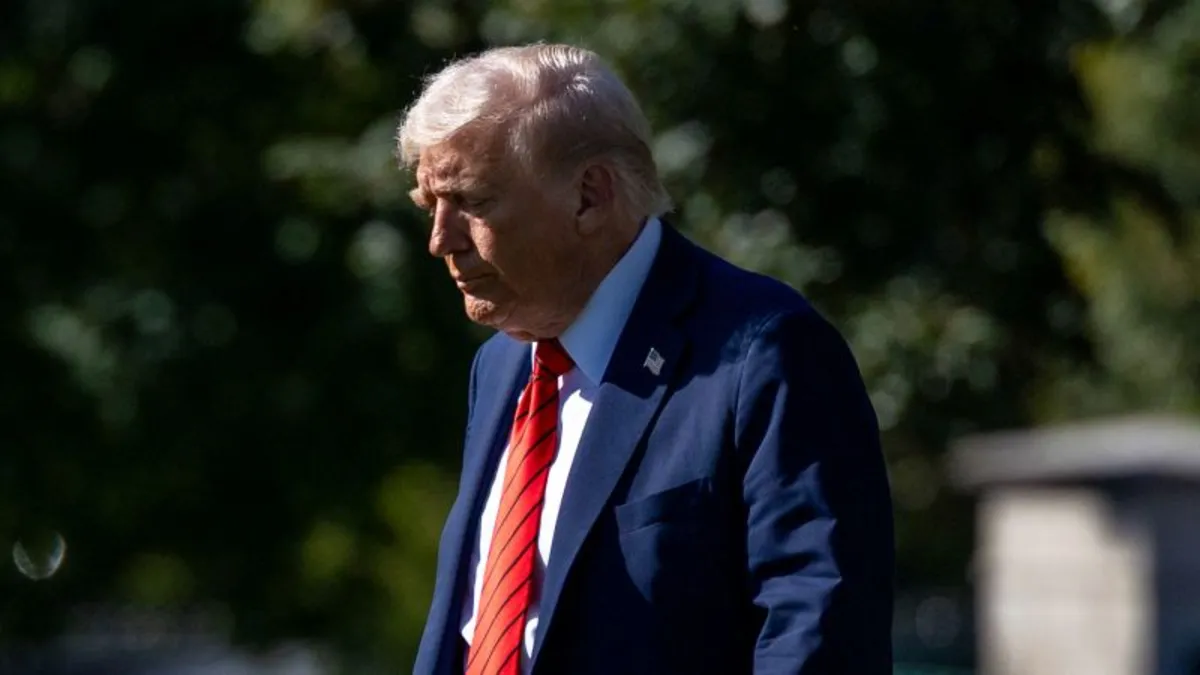
On Friday, US President Donald Trump engaged in a conversation with Nobel Peace Prize winner María Corina Machado, shortly after his administration publicly criticized the Nobel Committee for awarding her the prestigious honor. This interaction underscores Trump's long-standing ambition to secure a Nobel Prize himself, a desire that has gained traction as more world leaders endorse his candidacy.
The Nobel Committee announced that Machado would receive the 2025 Nobel Peace Prize for her tireless efforts in promoting democratic rights in Venezuela. They recognized her "struggle to achieve a just and peaceful transition from dictatorship to democracy." In a recent interview with the Spanish newspaper El País, Machado confirmed her conversation with President Trump but refrained from disclosing specific details.
Expressing her gratitude, Machado acknowledged Trump during her acceptance speech for the award. In remarks made Friday evening, Trump confirmed their call, stating that Machado was “very nice” during their conversation. He humorously recounted her words, saying, “I’m accepting this in honor of you, because you really deserved it.” Trump added, “I’ve been helping her along the way,” highlighting the ongoing crisis in Venezuela and the need for international support.
Following the announcement of Machado as the Nobel laureate, the Trump administration's response was less than favorable. Steven Cheung, the White House communications director, criticized the Nobel Committee, claiming they prioritize politics over genuine peace efforts. This sentiment reflects the administration's frustration with the committee's decision, especially given the context of Machado's activism against Venezuelan President Nicolás Maduro.
Over the years, Machado has faced severe repression and has been forced into hiding due to Maduro's crackdown on dissent. Despite this, she has remained a vocal advocate for democracy, famously promoting the idea of "ballots over bullets." Many officials within the Trump administration have previously lauded her commitment to democratic ideals.
Notably, Secretary of State Marco Rubio and several other lawmakers nominated Machado for the Nobel Peace Prize in 2024. In a letter, they praised her courage and dedication to human rights, emphasizing her role as an exemplary leader in the fight for democracy in the Western Hemisphere. Rubio has described Machado as “the personification of resilience, tenacity, and patriotism,” highlighting her unwavering commitment to a free Venezuela. Trump himself referred to her as a freedom fighter, emphasizing the need for her safety and continued advocacy.
After receiving the award, Machado dedicated it "to the suffering people of Venezuela and to President Trump for his decisive support of our cause!" However, the reaction from the Trump allies was mixed, with some expressing discontent over the Nobel Committee's choice to honor Machado instead of Trump. Richard Grenell, Trump's envoy for Venezuela, remarked that the "Nobel Prize died years ago," indicating a clear dissatisfaction with the recognition given to Machado.
Furthermore, Benjamin Gedan, a former director at the National Security Council, suggested that the Nobel Committee's decision may carry a message aimed at both the United States and the Venezuelan opposition, advocating for peaceful measures rather than military intervention against Maduro's regime.
While Trump refrained from commenting on Machado's Nobel win until later in the day, he had previously expressed gratitude toward Russian President Vladimir Putin for his remarks about the Nobel Prize. Putin acknowledged that while he was unsure if Trump deserved the award, he recognized Trump's efforts to resolve longstanding global crises. Trump shared this sentiment on social media, thanking Putin, despite the complex geopolitical context surrounding Russia’s actions in Ukraine.
This evolving story illustrates the intricate dynamics between U.S. foreign policy, the recognition of global leaders, and the ongoing struggle for democracy in Venezuela. As the situation unfolds, the implications of Machado's Nobel Prize, alongside Trump's aspirations, continue to capture international attention.